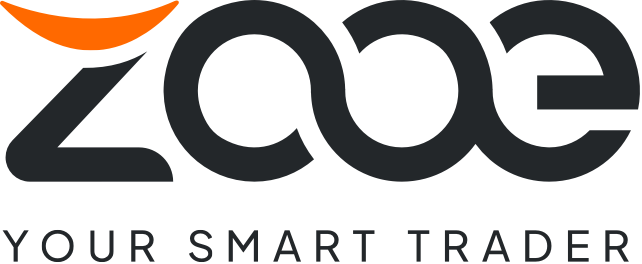Understanding Forex Trading Accounts
author: 2024-07-12 click:94
Forex trading accounts are special accounts that allow individuals and institutions to trade in the foreign exchange market. These accounts are typically offered by forex brokers and come in different types to suit the trading strategies and preferences of the traders. Here are some key points to understand about forex trading accounts:
1. Types of forex trading accounts: There are several types of forex trading accounts, including standard accounts, mini accounts, and managed accounts. Standard accounts require a larger initial deposit, while mini accounts are suitable for beginners with smaller capital. Managed accounts are handled by professional traders on behalf of the account owner.
2. Leverage and margin: Forex trading accounts often offer leverage, which allows traders to control larger positions with a smaller amount of capital. However, leverage also involves higher risk, as losses can exceed the initial investment. Margin is the amount of money required to open a position in the forex market.
3. Account currencies: Forex trading accounts can be denominated in various currencies, such as USD, EUR, GBP, and JPY. Traders should choose the account currency that best suits their trading needs and preferences.
4. Account funding and withdrawal: Traders can deposit funds into their forex trading accounts through various payment methods, such as bank transfer, credit card, and e-wallets. Similarly, traders can withdraw their profits from the account using the same payment methods.
5. Trading platforms: Forex trading accounts are accessed through trading platforms provided by forex brokers. These platforms offer tools and features for executing trades, analyzing market data, and managing positions.
6. Fees and commissions: Forex brokers may charge fees and commissions for trading on their platforms. These fees can vary depending on the broker and the type of account. Traders should consider these costs when choosing a forex trading account.
Overall, forex trading accounts provide traders with access to the global currency markets, allowing them to speculate on the price movements of different currency pairs. It is important for traders to choose a reputable broker and account type that aligns with their trading goals and risk tolerance.
Understanding Forex Trading Accounts
Foreign exchange, also known as forex, is a decentralized global market where currencies are traded. Forex trading accounts play a crucial role in facilitating these transactions. In this article, we will explore the different types of forex trading accounts, their regulatory mechanisms, and the key points to successfully navigate this market.
Forex trading accounts can be broadly classified into two categories: demo accounts and real accounts. Demo accounts allow newcomers to practice trading with virtual money in a simulated market environment. This helps traders familiarize themselves with the trading platform and develop their strategies without risking real funds. On the other hand, real accounts involve actual financial transactions with real money. Traders use real accounts to execute trades and earn profits or incur losses.
Regulatory mechanisms are essential in the forex market to ensure fair and transparent trading practices. Regulatory bodies such as the Commodity Futures Trading Commission (CFTC) in the United States and the Financial Conduct Authority (FCA) in the United Kingdom oversee forex brokers and monitor their compliance with industry standards. These regulations aim to protect traders from fraudulent activities and maintain the integrity of the market.
Forex liquidity providers play a crucial role in ensuring sufficient liquidity in the market. These institutions facilitate the execution of large trades by offering competitive bid and ask prices. By accessing multiple liquidity providers, traders can benefit from improved order execution and tighter spreads, thereby enhancing their trading performance.
Forex scalping is a trading strategy that involves making small profits from multiple trades throughout the day. While scalping can be profitable, it also carries higher risks due to the rapid pace of trading. Traders should be aware of the potential risks associated with scalping and implement risk management strategies to protect their capital.
Day trading is another popular forex trading strategy that involves opening and closing positions within the same trading day. Successful day traders rely on technical analysis and market trends to make quick trading decisions. By mastering the key points of day trading, traders can capitalize on short-term price movements and generate consistent profits.
In conclusion, understanding forex trading accounts is essential for success in the foreign exchange market. By selecting the right account type, adhering to regulatory guidelines, partnering with reputable liquidity providers, and using effective trading strategies, traders can navigate the forex market with confidence and achieve their financial goals.
1. Types of forex trading accounts: There are several types of forex trading accounts, including standard accounts, mini accounts, and managed accounts. Standard accounts require a larger initial deposit, while mini accounts are suitable for beginners with smaller capital. Managed accounts are handled by professional traders on behalf of the account owner.
2. Leverage and margin: Forex trading accounts often offer leverage, which allows traders to control larger positions with a smaller amount of capital. However, leverage also involves higher risk, as losses can exceed the initial investment. Margin is the amount of money required to open a position in the forex market.
3. Account currencies: Forex trading accounts can be denominated in various currencies, such as USD, EUR, GBP, and JPY. Traders should choose the account currency that best suits their trading needs and preferences.
4. Account funding and withdrawal: Traders can deposit funds into their forex trading accounts through various payment methods, such as bank transfer, credit card, and e-wallets. Similarly, traders can withdraw their profits from the account using the same payment methods.
5. Trading platforms: Forex trading accounts are accessed through trading platforms provided by forex brokers. These platforms offer tools and features for executing trades, analyzing market data, and managing positions.
6. Fees and commissions: Forex brokers may charge fees and commissions for trading on their platforms. These fees can vary depending on the broker and the type of account. Traders should consider these costs when choosing a forex trading account.
Overall, forex trading accounts provide traders with access to the global currency markets, allowing them to speculate on the price movements of different currency pairs. It is important for traders to choose a reputable broker and account type that aligns with their trading goals and risk tolerance.
Understanding Forex Trading Accounts
Foreign exchange, also known as forex, is a decentralized global market where currencies are traded. Forex trading accounts play a crucial role in facilitating these transactions. In this article, we will explore the different types of forex trading accounts, their regulatory mechanisms, and the key points to successfully navigate this market.
Forex trading accounts can be broadly classified into two categories: demo accounts and real accounts. Demo accounts allow newcomers to practice trading with virtual money in a simulated market environment. This helps traders familiarize themselves with the trading platform and develop their strategies without risking real funds. On the other hand, real accounts involve actual financial transactions with real money. Traders use real accounts to execute trades and earn profits or incur losses.
Regulatory mechanisms are essential in the forex market to ensure fair and transparent trading practices. Regulatory bodies such as the Commodity Futures Trading Commission (CFTC) in the United States and the Financial Conduct Authority (FCA) in the United Kingdom oversee forex brokers and monitor their compliance with industry standards. These regulations aim to protect traders from fraudulent activities and maintain the integrity of the market.
Forex liquidity providers play a crucial role in ensuring sufficient liquidity in the market. These institutions facilitate the execution of large trades by offering competitive bid and ask prices. By accessing multiple liquidity providers, traders can benefit from improved order execution and tighter spreads, thereby enhancing their trading performance.
Forex scalping is a trading strategy that involves making small profits from multiple trades throughout the day. While scalping can be profitable, it also carries higher risks due to the rapid pace of trading. Traders should be aware of the potential risks associated with scalping and implement risk management strategies to protect their capital.
Day trading is another popular forex trading strategy that involves opening and closing positions within the same trading day. Successful day traders rely on technical analysis and market trends to make quick trading decisions. By mastering the key points of day trading, traders can capitalize on short-term price movements and generate consistent profits.
In conclusion, understanding forex trading accounts is essential for success in the foreign exchange market. By selecting the right account type, adhering to regulatory guidelines, partnering with reputable liquidity providers, and using effective trading strategies, traders can navigate the forex market with confidence and achieve their financial goals.
NEWS LIST
e trade morgan stanley, tradeserviceonline, best trading broker, ninjatrader brokerage, best stock p
forex 101 an educational guide for beginners, exness trading for beginners, forex trading demo for b
forex for pc, forex market live chart, the most popular forex broker, forex broker list in world, fo


